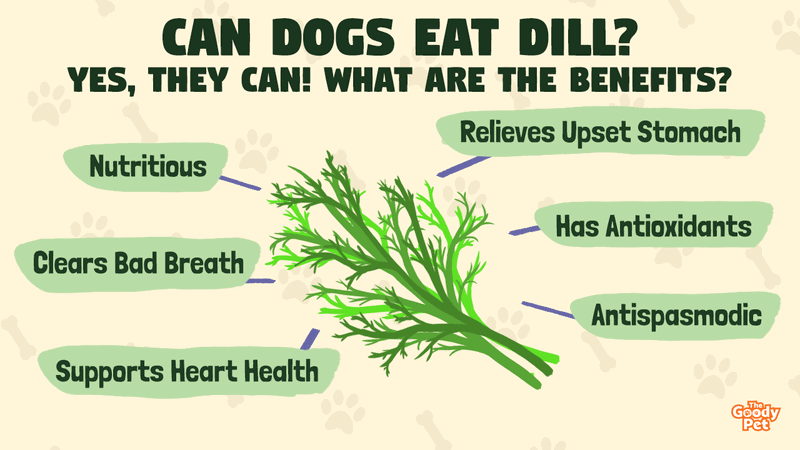Many people love dill in their food for its safety, aroma, and health benefits it has for humans. Similarly, we would like to know if our furry friends can also eat it and share its benefits. So let’s find out in this article if dogs can eat dill.
Yes, dogs can eat dill and have it sprinkled on their food. The amount of dill given to our furry friends should just be a moderate sprinkle is enough for them. Dill has many health benefits it can give to your furry friend, including solving digestive problems. Despite all its benefits, dill oil extract should not be given to dogs as it can cause skin allergies.
Also, you should watch for any awful signs that may occur in your pooch when giving it dill for the first time. Your beloved pooch may be allergic to dill, and you will need to take dill out of its diet.
In this article, we are going to look at if dogs can have other kinds of dill like dill seasonings and the amount of dill they can have. Further, we are going to know if dill is poisonous to dogs, and lastly, we will see the health benefits of dill. But before that, let us see if dogs can eat dill.
Can Dogs Eat Dill?
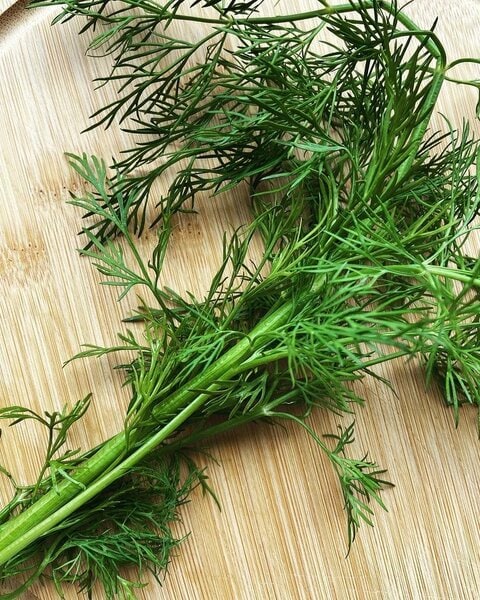
Yes, dogs can enjoy dill just like the other herbs that are suitable for them. Dill is a wonderful plant from the celery family. Known for its popularity across Europe and Central Asia, this herb is very aromatic and used to spice up cuisines.
Dill can be served to our furry friends in various ways. One of the popular ways you can serve dill to your furry friends is to add it to salmon or roasted potatoes. Another common way is to have dill together with cucumbers, or other vegetables, as an appetizing salad.
But whatever way you choose to add dill to their diet, ensure that the food is classified as safe. Also, read on to find out the ideal amount of dill to add for dogs to consume.
Can Dogs Eat Dill Leaves?
Yes, of course, doggies can eat dill leaves. The dill leaves are the actual dill together with the stem that is cut to make a nice dill cuisine.
You should also make sure that the dill leaves are fully grown before harvesting them to make food for your furry companions.
Can Dogs Have Dill Seasoning?
Yes, doggies can have dill seasonings. Dill seasoning is a dried dill used to spice up food.
If you decide to purchase dill seasoning, you should ensure that it is free from any known toxic ingredients for doggies. More so, make sure that the dill seasoning is not heavily salted.
Can Dogs Eat Raw Dill?
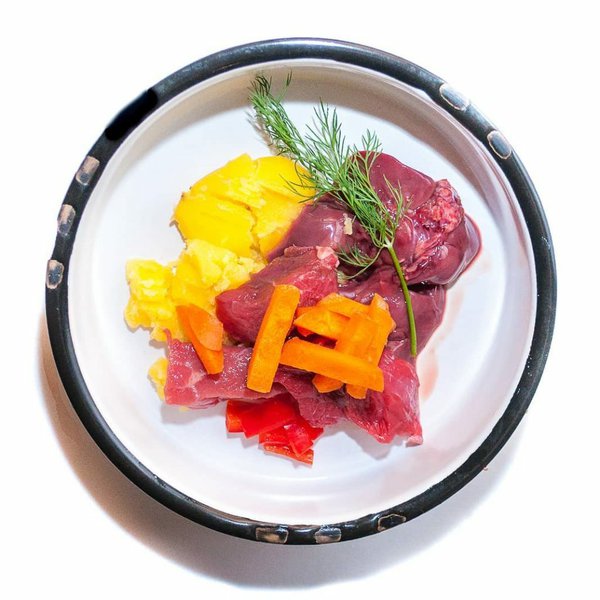
Yes, dogs can eat raw dill. All you need to do is to make sure that the dill plant is properly washed. Further, you should cut it into smaller parts for your furry friends to easily munch.
When done, you can sprinkle the raw dills into their favorite diet. But as always, let it be done moderately.
Can Dogs Eat Dry Dill?
Yes, dogs can eat dry dill. Before using dry dill in their diet, you should store it properly and ensure there is no mold built upon it. You could add the dry dill as seasonings or spices when preparing their food.
Can Dogs Eat Dill Seeds?
Yes, dogs can eat dill seeds. Herbs and horticulture experts Gregory L. Tilford and Mary L. Wulff recommend 2 to 8 ounces of cooled dill seed tea in their book “Herbs for Pets.” Alternatively, our canine buddies can have dill seeds by sprinkling them on their food.
Can Dogs Eat Dill Pickles?
No, dogs can’t eat dill pickles. To understand why dogs can’t eat dill pickles, let’s first see how dill pickles are made. To make dill pickles, cucumbers, and dill sprigs or seeds are soaked in brine for 1 to 2 days.
Brine is a concentrated salt solution, and vinegar and other spices may also be added. This brine makes dill pickles not recommended for doggies as too much salt is harmful to them.
Is Dill Good For Dogs To Eat?
Yes, dill is safe for dogs to eat. There are no known or established claims of its toxicity. Nevertheless, remember that dill is most safe for our furry companions when served moderately.
Can Dill Hurt Dogs?
No, dill can’t hurt dogs. When it is served moderately and once in a while, they will be fine with it.
However, the only thing known in dill to be hurtful is the oil. Dill essential oil, when rubbed on the skin, can cause allergies in dogs and even in humans. Also, you should not give them dill as food if they show an allergy to it.
How Much Dill Can I Give My Dog?
Foods to feed your dog should always be served in moderation. You should give your doggie ½ to 1 tablespoon of dried dill or 1 to 2 sprigs of fresh dill.
To make dill seed tea for your doggie, you need one teaspoon of dill seed mixed in 2 to 8 ounces of water. You should then serve about 2 to 8 ounces of the tea made.
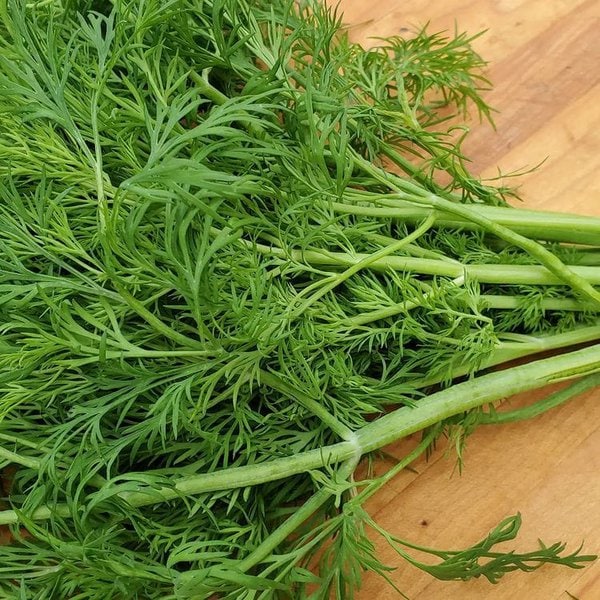
What Are The Benefits Of Dill For Dogs?
There are many health benefits of dill for dogs apart from its use to spice food. Here are some of the many benefits of dill.
Nutrients
Dill has a surprisingly high amount of vitamin C, about 110 mg of it per 100 g of dill. It also contains vitamin B6, calcium, magnesium, iron, and dietary fiber.
Antispasmodic
Dill is antispasmodic, meaning that it can help inhibit uncontrollable muscle movements or spasms in dogs. For example, dill can help to control bowel spasms and other irregular gastrointestinal movements.
Clears Bad Breath
Dill can help clear bad breath in dogs. This is due to its antimicrobial properties that kill off bacteria. Peppermint and parsley supplements can be used together with dill to achieve this purpose.
Relieves Upset Stomach
Sometimes, our furry friends can have an upset stomach from eating contaminated food. In this situation, eating dill can calm the upset stomach. This is because of dill’s ability to kill off bacteria in the gastrointestinal tract.
Has Antioxidants
Dill contains antioxidants such as flavonoids and terpenoids.
These antioxidants can fight off free radicals from your pooch’s body system. Consequently, it prevents damage due to free radicals, such as cancer and organ inflammation.
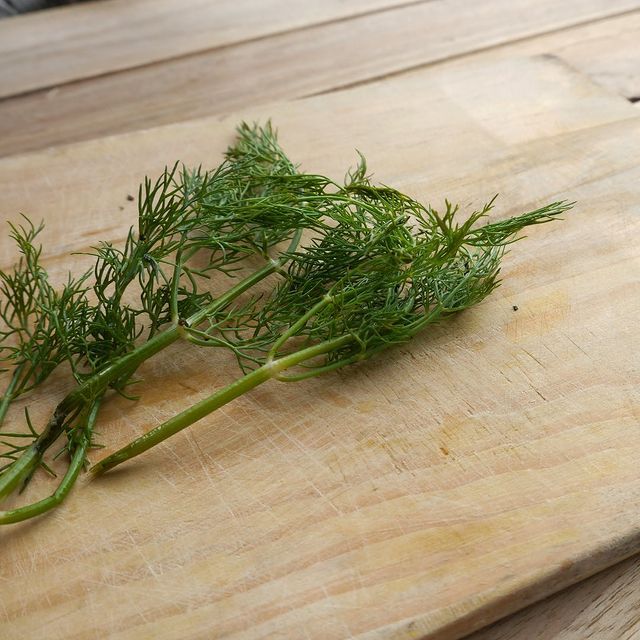
Supports Heart Health
There are considerations that dill may be beneficial to heart health because of its flavonoid’s antioxidant capability. Also, studies done on animals show that dill may lower cholesterol and triglycerides levels.
Lowers Fasting Blood Sugar
Several studies done on diabetic animals show a reduction in fasting blood sugar levels when fed daily with dill extracts. Hence, dill may be suitable for canines suffering from diabetes.
Other Benefits
Dill can help treat digestion problems and flatulence in dogs. It can also help with urinary problems in dogs. For example, in kidney and bladder stones problems, dill can help break down the uric acid.

